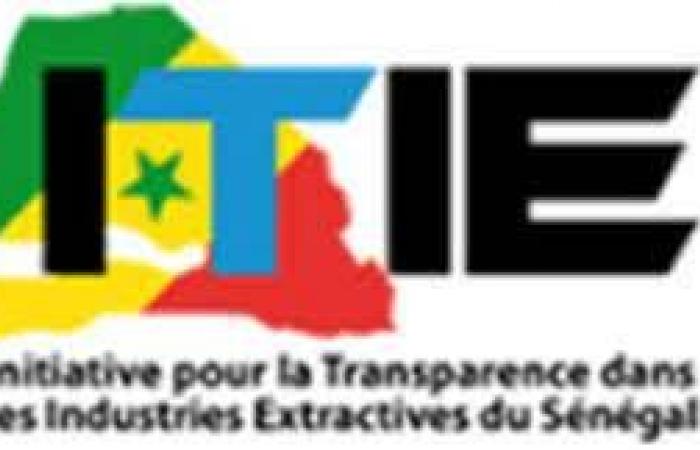To understand the importance of the EITI in the country’s institutional and governance architecture, it is necessary to take a retrospective look at the situation which prevailed before the country joined this initiative in 2013: absence of reliable data on the production, exports, revenues from the extractive sector and their contribution to the State budget, compartmentalization of administrations which prevented coordinated monitoring by the different administrations, weakness of the information systems of the administrations in charge of the extractive sector, and absence information for civil society, the National Assembly and control bodies; highly speculative environment based on conjectures and suspicions that undermined the business environment, etc. Senegal’s adherence to the EITI Standard in this context allowed the country to evaluate its texts and its practice against international good practices, offering a benchmark opportunity with more than fifty (50) countries. After ten (10) years of implementation of the EITI and despite mainstreaming efforts, the EITI remains the leading source of quality information on the extractive sector (company payment, production and export data, declaration financial management, statistics on employment and transactions with suppliers, contribution to GDP, etc.); which helps to strengthen public debate. Consequently, a certain number of achievements are perceptible:
· Engagement of stakeholders at the highest level (administrations, civil society and private sector);
· Reduction of information asymmetry in the extractive sector;
· Access of citizens to reliable and exhaustive information on the entire value chain of the extractive sector through published annual reports;
· Substantial improvement of information systems in the mining, oil and gas sectors, and at the level of financial authorities;
· Mobilization of extractive revenues and their effective accounting in the State budget;
· Two successful validations with satisfactory progress in 2018 and a very high score in 2021;
· Impetus for several legal reforms in the extractive sector (effective beneficiaries, mining taxation, equalization and support funds for local authorities, local content, etc.);
· Establishment of a register of beneficial owners of extractive companies;
· International recognition materialized by the holding in Dakar of the first global EITI conference in Africa on the occasion of the 20th anniversary of the international EITI in 2023.
However, given its transversal position and the central role of data in the planning and monitoring of public policies, Senegal could benefit much more from this great institution that is the EITI, whose inestimable value of the data provided does not is matched by its contribution to the governance of the mining, oil and gas sectors, and even to the steering of the country’s economic policy.
Indeed, to fully realize its potential, the EITI must not be limited to producing reports intended to monitor the requirements of the Standard. Likewise, it cannot continue to endure the debate on the extractive sector in the face of an increasingly demanding public and an engaged press. It can play an advisory role for the State in contract review processes; strengthen the analysis of global EITI requirements (declaration of beneficial owners, disclosure of costs and reserves, analysis of budgetary scenarios, etc.); help in the implementation and monitoring of the Funds that Senegal is struggling to implement; ensure monitoring of investments made from intergenerational funds; identify the reforms to be implemented to strengthen regulation, avoid social conflicts or address emerging challenges linked to oil and gas exploitation, etc.
In addition to expanding the scope of companies and reporting entities allowing the State to have a global vision of the sector; The EITI can be a framework for dialogue with administrations, also allowing investors’ concerns to be raised.
Such directions would only be possible if the new authorities considered the following measures:
· Transform the structure of the EITI into an independent administrative authority with an obligation to submit detailed and current reports on the evolution of the dynamics of the oil, gas and mining sector;
· Institutionalize the EITI as an advisory body and as a key partner for ministries (mines, finance, environment) in the evaluation of extractive public policies;
· Promote partnerships with the National Assembly, research communities and Centers of Excellence for innovation and the testing of pilot projects involving communities;
· Use the resources offered by the EITI mechanism to serve the new strategic vision of the extractive sector oriented towards maximizing socio-economic benefits both at national and regional level;
· Expand the scope and impact of collected data by integrating predictive analytics mechanisms to anticipate industry trends (e.g. revenue streams or infrastructure needs). This could be done through partnerships with research institutions, such as the ANSD;
· Use the EITI to capture added value and sustainable development.
Par Elhadj Amath DialloPrivate sector, former member of the National EITI Committee; Abdou Aziz DiopCivil society, former member of the National EITI Committee; Dr. Moustapha FallTeacher-researcher, former Afff. Manager. EITI Legal; Cheikh Tidiane TouréConsultant, former Permanent Secretary of the EITI.






